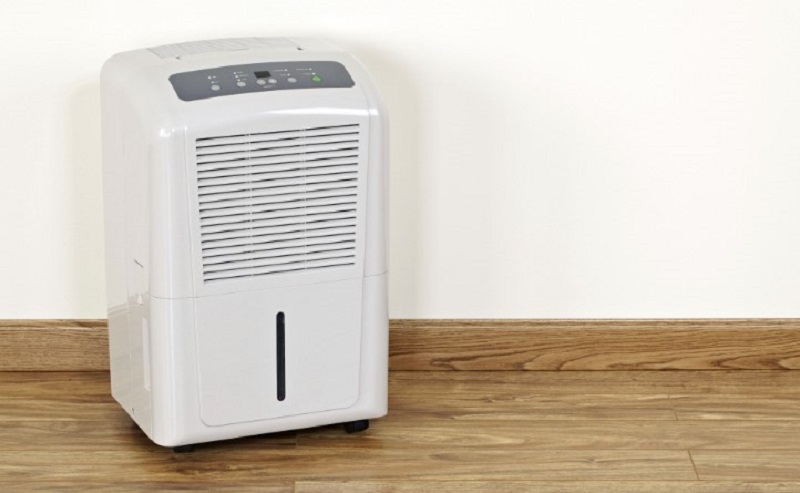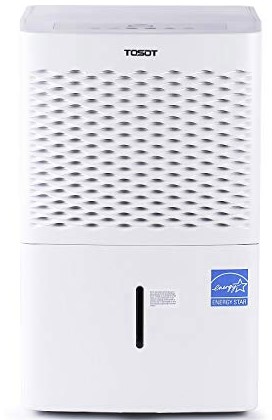How much does it cost to run a dehumidifier?

Are you worried about the costs of running a dehumidifier? You are not alone! Many homeowners often worry about purchasing one due to the extra costs it brings in energy bills. But are dehumidifiers expensive to run? How much do they really cost in terms of electricity bills?
Before purchasing a dehumidifier, one of the factors you have to consider is the energy cost. Below, we have compiled all the information you need on the dehumidifier running cots. We’ve also listed several tips that can help you bring down the power costs, giving you more bang for the buck.

The cost of running a dehumidifier
Dehumidifier running costs are dependent on several factors:
- The power rating (i.e. how much electricity a dehumidifier uses) – small units have a power rating of about 20W, while larger units have about 260 – 300W
- The duration you run your dehumidifier – The longer you run the unit, the more energy it will use. If you run a dehumidifier 24 /7, you will incur high energy bills at the end of the month
- The energy modes of the unit – some units have several modes that use different amounts of electricity, despite the power rating of the unit. For example, low, medium, or high fan setting.
How to calculate dehumidifier running costs
As noted above, the cost to run a dehumidifier all comes down to the dehumidifier power usage and the running time. Then you have to factor in the power charges by your utility company.
Take, for example, a 300 W dehumidifier running at the highest energy mode. If you run it for 24 hours a day, the energy costs will be as follows:
- Power usage for a single day: 300W * 24 hrs > 7200 watthours or 7.2KWh
- Power usage for a month: 7.2KWh *30 > 216KWh
- Power usage for a year: 7.2KWh*365 > 2628KWh
Assuming your utility company charges 13.5 cents per kilowatt-hour, your energy bill will be as follows: $0.972 a day, $29.16 a month, and $354.78 a year.
But what if you run your unit for 12 hours a day only? Then your power usage and energy bills will be as follows:
- A single day: 300*12 > 3.6KWh*0.135 > $0.486
- A month: 300*12*30 > 108KWh *0.135 > $14.58
- A year: 300*12*365 > 1314KWh*0.135 > $177.39
Energy star rating: does it help to save on dehumidifier energy costs?
 When looking to purchase a dehumidifier, you might have come across the term “Energy Star Rating.” What is it, and does it help save energy?
When looking to purchase a dehumidifier, you might have come across the term “Energy Star Rating.” What is it, and does it help save energy?
The term refers to a certification that is given to electrical units that employ various energy-saving techniques in their designs. This article goes deeper into what it entails and the difference between Energy Star Qualified and Energy Star Certified.
In the case of a dehumidifier, it might mean that it uses fans, compressors, cooling coils, and/or other components that consume less energy compared to similar units.
The benefit of an energy star rated dehumidifier is that it consumes less electricity.
When combined with other energy-saving techniques, such a dehumidifier can translate into several dollars of savings every month.
Tips on how to lower the energy costs of running a dehumidifier
Is your dehumidifier energy consumption too high? Or are you worried about it being unmanageable once you purchase it? Well, don’t worry! Several tips can help you reduce energy usage, and save you money.
1. Keep your windows and doors closed
Leaving your windows and doors open allows moisture to keep pouring into your house, as your dehumidifier works.
This leads to high power usage, and consequently, high energy bills.
2. Set the dehumidifier in the right spot
A dehumidifier needs proper airflow to function at an optimal level. Placing it blocked space will thus lead to extra work, resulting in more energy use.
Therefore, you should position it at a convenient location, for example, at the center of the room to ensure efficient energy consumption.
If you are purchasing a dehumidifier for a garage, make sure to place it strategically in a location where it can cover most of the room.
3. Clean your dehumidifier regularly
As air flows through the unit, it is cleaned, with dust, mold, and other particles trapped. Therefore, you must clean the filters regularly to ensure that it remains energy efficient.
4. Improve water drainage in your home
Water that is trapped in clogged gutters and drainage, your garden, or close to the house foundation can increase the moisture entering your house. This increases the humidity, which gives your unit more work.
Therefore, improving water drainage around your house can help make your dehumidifier more energy-efficient and reduce the cost to run a dehumidifier.
Summary
Dehumidifiers play an important role in maintaining a conducive environment in your home. However, they do consume power, and depending on how large your unit is (and how much you use it), the bills might be too high.
However, you can reduce the cost to run a dehumidifier by purchasing an Energy Star Rated unit. On top of that, there are several ways you can make your unit dehumidifier more efficient, thus saving money.
